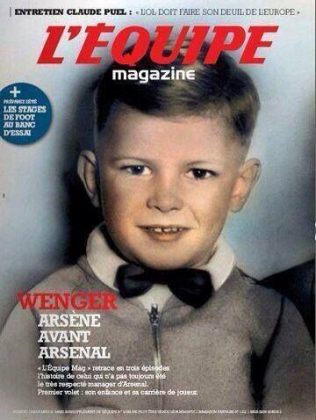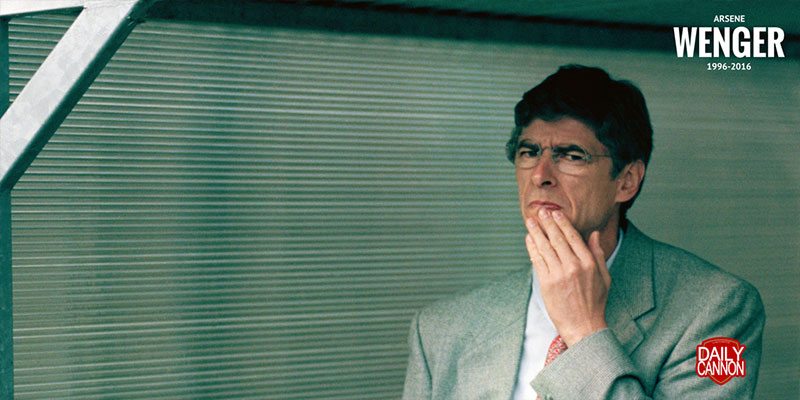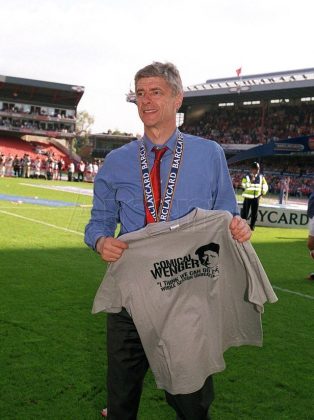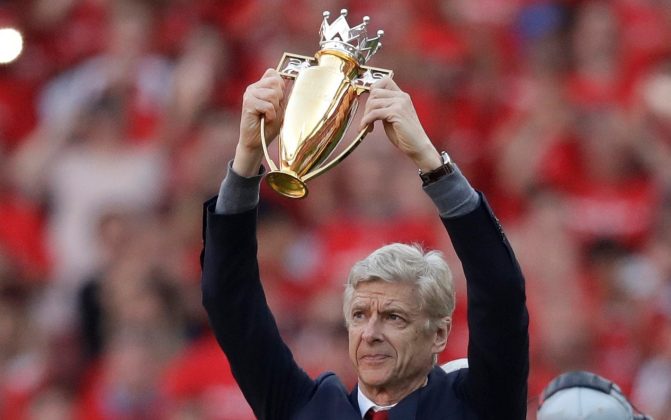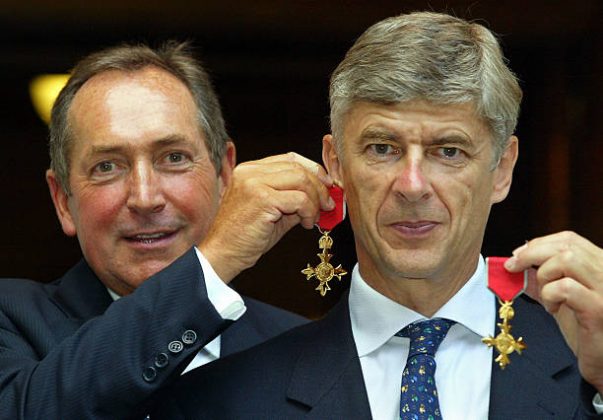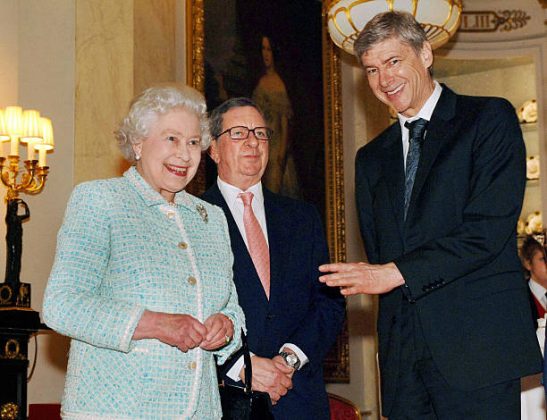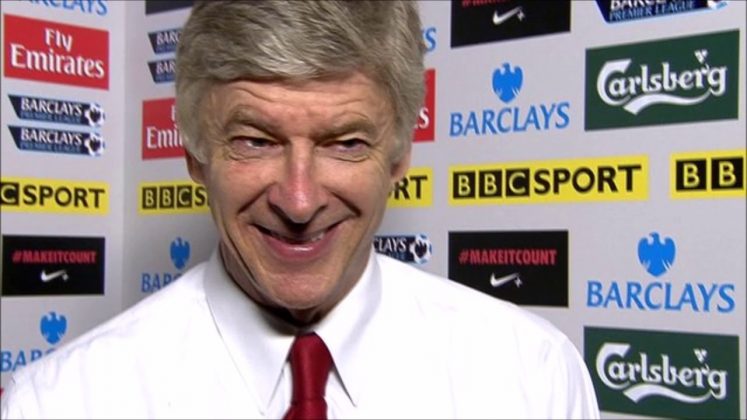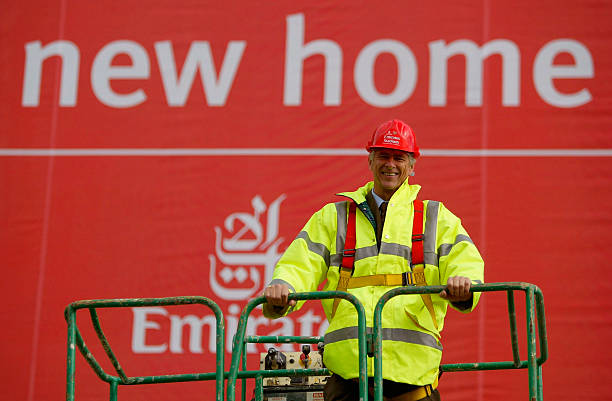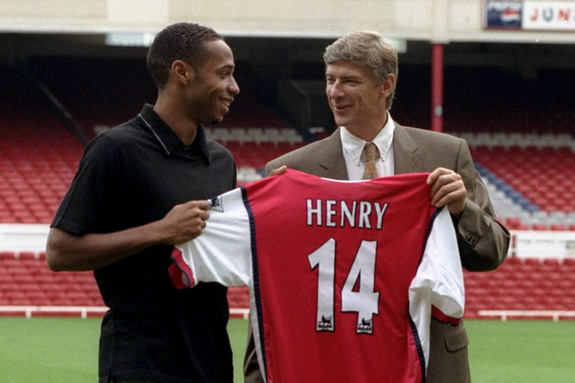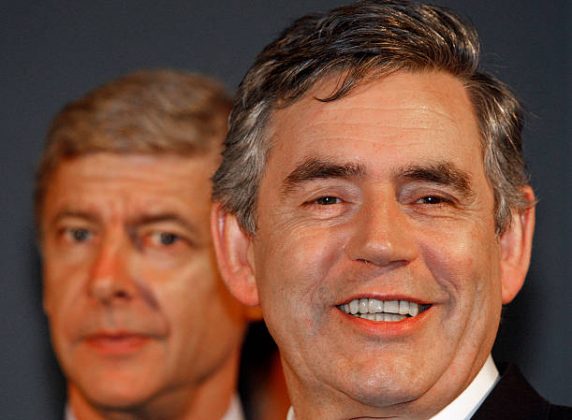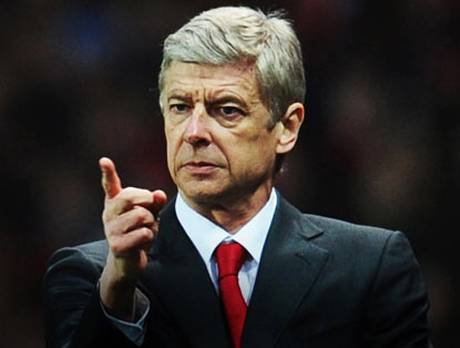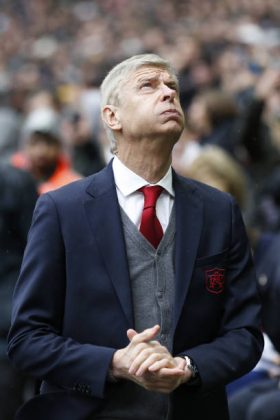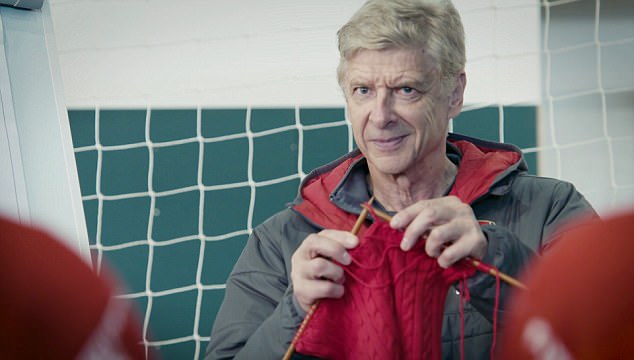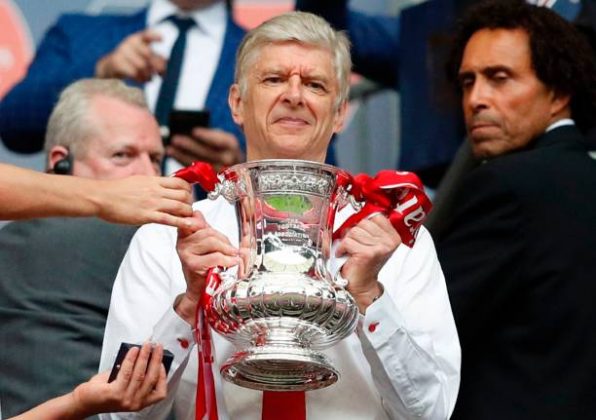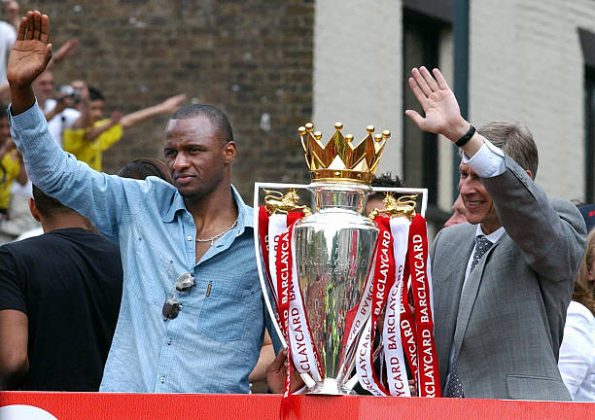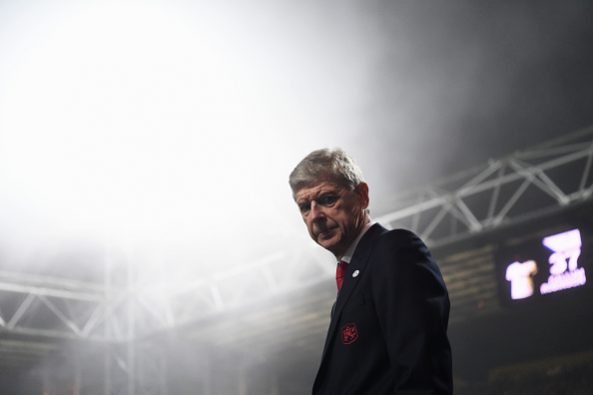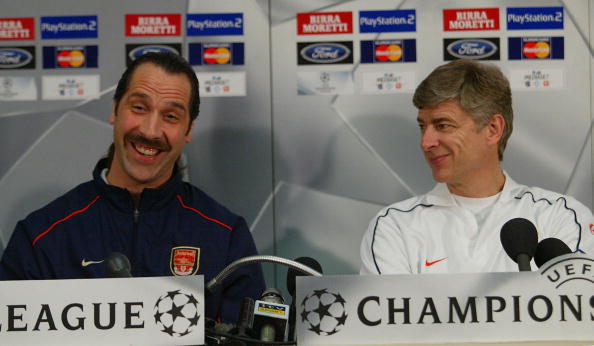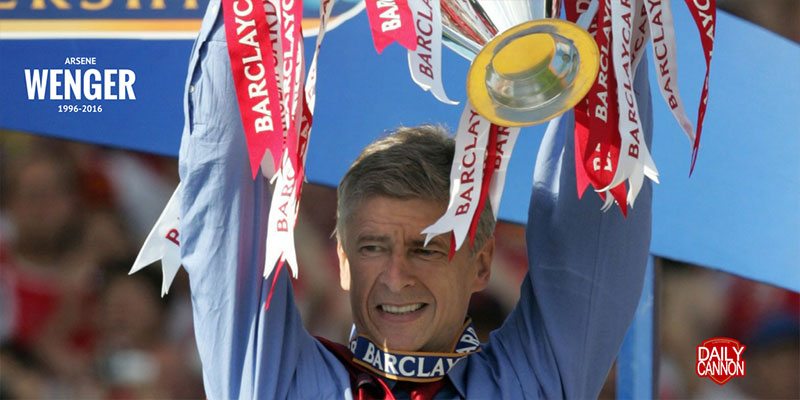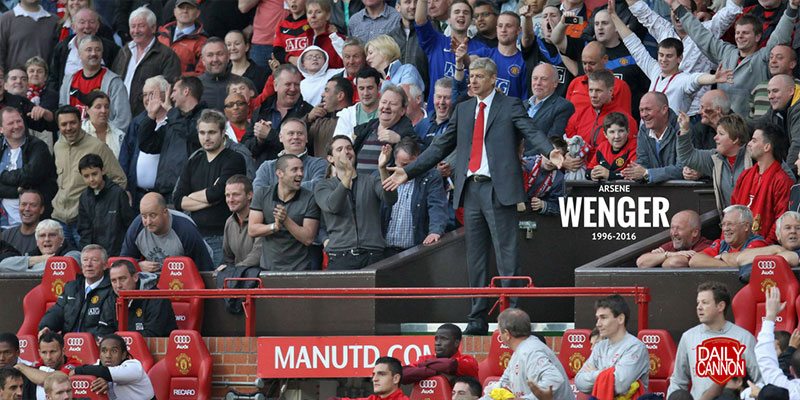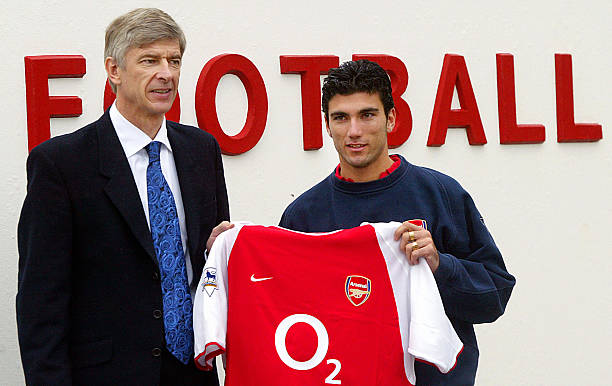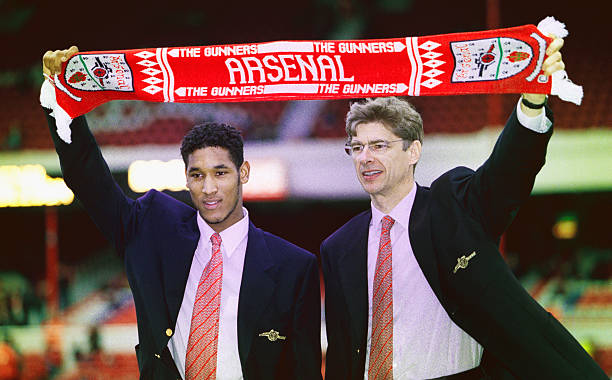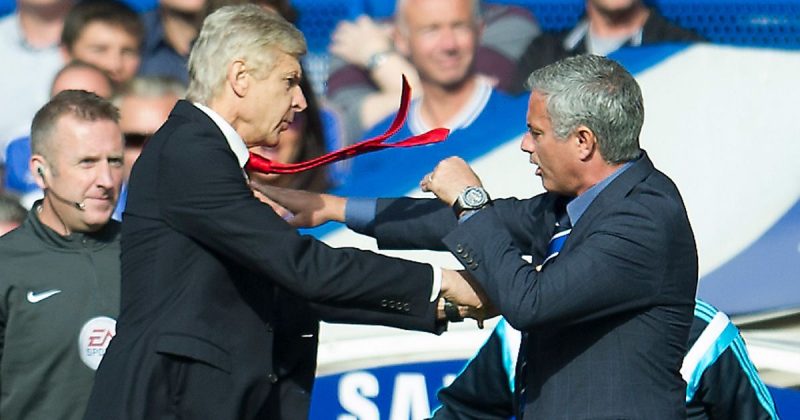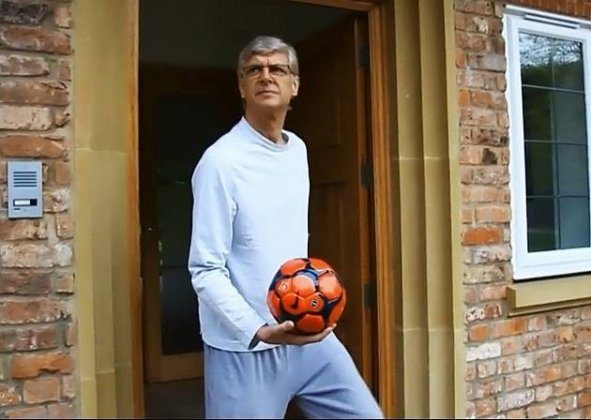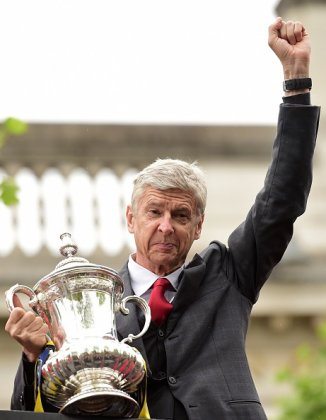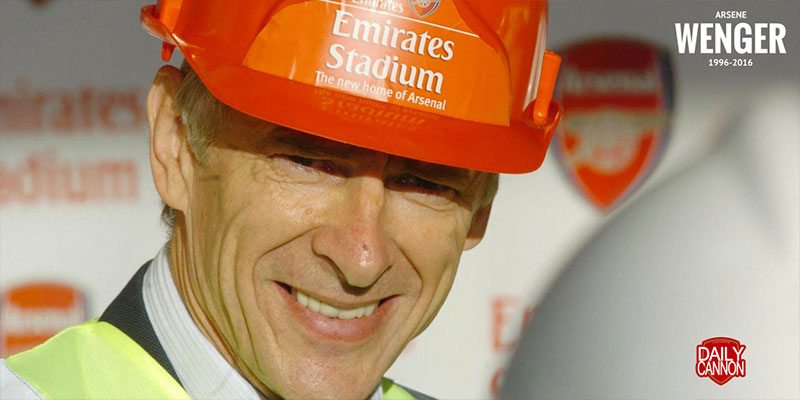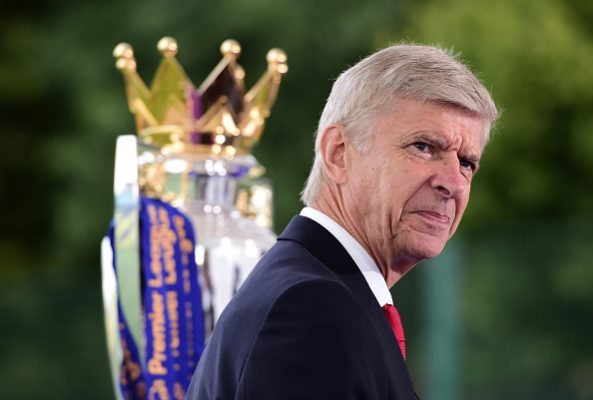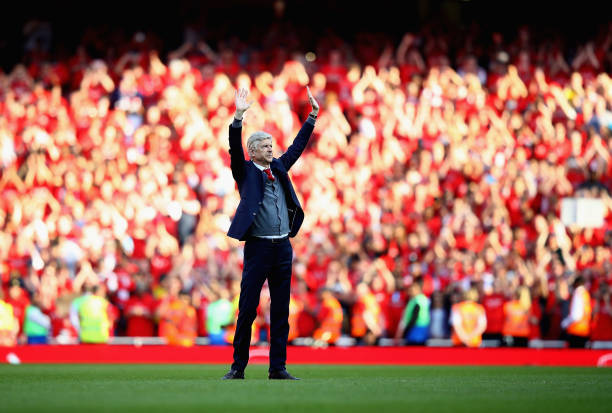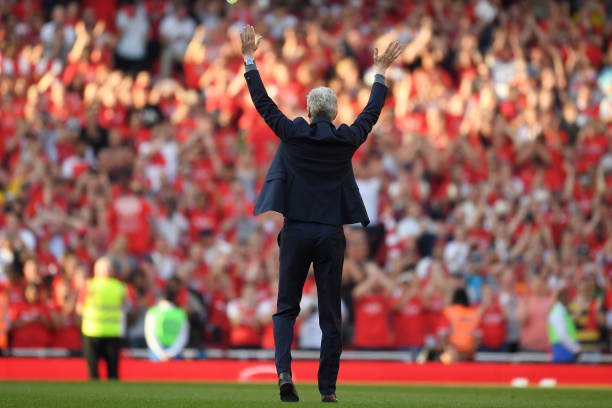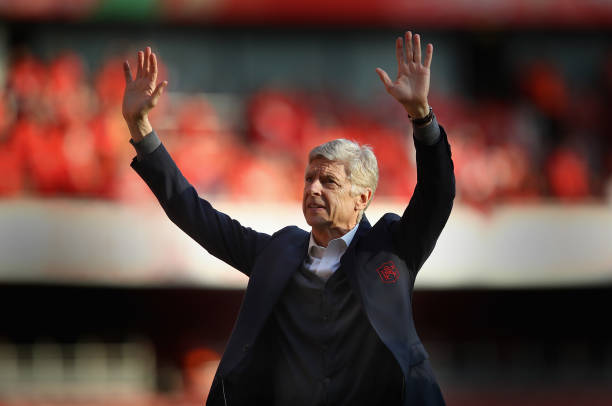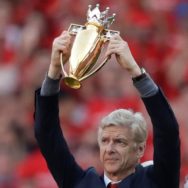
Arsene Charles Ernest Wenger was manager of Arsenal from 1996 until 2018.
He is Arsenal’s most successful manager and now works as FIFA’s Chief of Global Football Development
Latest Arsene Wenger news
- Arsene Wenger, FIFA’s Chief of Global Development since the end of 2019, has hit out at proposals to overhaul the Champions League, warning that fans will be turned off if the competition is watered down. [Inside World Football]
Arsene Wenger explains why he really wanted Jamie Vardy
Arsene Wenger says Arsenal offered Jamie Vardy a lot of money to join in 2016, and he believes the striker would have done well in North London.
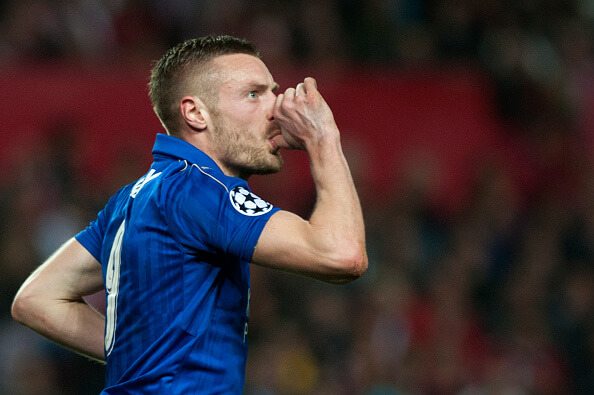
As we all know by now, Arsenal tried to sign Jamie Vardy from Leicester City back in 2016. Arsene Wenger spoke about the move this weekend, when asked about how close they came to a deal.
“I offered him a lot of money at the time,” Wenger told beIN Sports (via Sky Sports).
“Leicester had just won the championship at the time in 2016, and they absolutely did not want to lose him and offered him a longer contract with approximately the same money if not more.”
Wenger insisted that Vardy would have been a success at Arsenal despite the differences in playing style between Leicester City and the Gunners at that time.
“It is true we had more of the ball, but I think around the box, the timing of his runs, and the way he finds the space make him what he is,” Wenger continued. “When you see the big strikers, they are on the move in the box when others stand still in the box.
“He has those things. They read the game earlier than others, they anticipate better, they understand quicker than other people what is going on.”
Vardy has previously claimed he never spoke with Arsenal, despite being aware of their interest in him. But Dick Law, the club’s transfer negotiator at the time, specifically confirmed an in-person meeting between the player and Wenger that summer.
The deal with Leicester was reportedly done, it was just a case of whether Vardy would agree to it or not. He stalled after his visit to the Emirates, before deciding against it. That’s just how it goes sometimes.
Arsene Wenger at Monaco
Arsene Wenger was at Arsenal for so long that most of us have forgotten he actually managed several other teams before his 1996 move to north London.
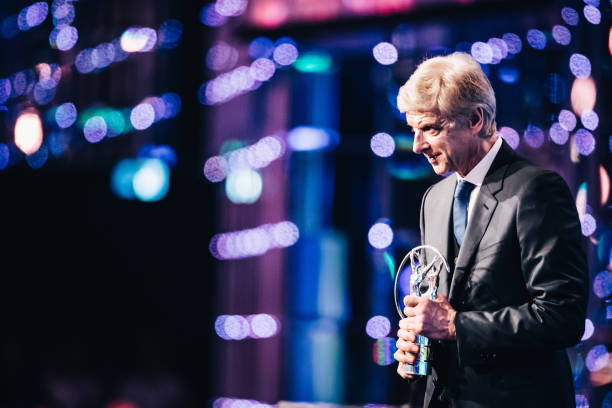
Wenger managed Nancy (1984-87) and Nagoya Grampus Eight for a year before moving to Arsenal and staying put for two decades. However, in between these two clubs, he was at Monaco for seven years.
There, he won the Ligue 1 title in 1987-88 before collecting the Coupe de France in 1990-91. The Frenchman certainly made his mark at Monaco, However, he’d been coaching for far longer.
While many believe the 70-year-old began his managerial career at Nancy in 1984, he actually started coaching Strasbourg’s u19s in 1981 after he gave up his playing career at the same club. His home team.
Wenger’s teammates had apparently always thought of him as a leader and he impressed during his time in charge. It didn’t take long for Nancy to snap him up.
Ultimately, however, the French side were relegated; funds were very limited and their squad wasn’t the best, which explains how the boss learned to become so thrifty in later years, but if you play online blackjack at Mansion you might not have have to worry about it something like that yourself.
Ultimately when Nancy went down, Wenger was allowed to converse with Monaco, where he moved.
When Wenger joined Monaco, he had already outlined the players he wanted to sign and how he would like to set up his squad.
The Ligue 1 side had just ended 5th but had been relying on Omar Da Fonseca, an Argentine striker. One of the Wenger’s first signings at Monaco was Mark Hateley. Da Fonseca had just scored 9 goals in 50 appearances for the French side.
Wenger didn’t hesitate and also signed Glenn Hoddle, who was at Spurs and had netted 88 goals in 377 appearances.
They were joined by French international, Patrick Battiston, who moved on a free transfer from Bordeaux.
Claude Puel was already in the side, and Monaco now had a strong team, one that people knew would challenge for the title.
In the duration of a year, Wenger managed to transformed the club. He changed their diets, introduced intense training methods and conducted 45-minute presentations on how to beat their opposition. Sound familiar?
Monaco won the Ligue 1 title by six points that season by playing beautiful football with a strong spine and the technically gifted Hoddle in the centre of the park.
Wenger’s eye for young talent didn’t start at Arsenal. He selected the players like George Weah, Lillian Thuram, Youri Djorkaeff, Emmanuel Petit and Thierry Henry when they were young. Some of them, as you know, would eventually sign for the Gunners.
During this time, and after making some solid signings and in 1988-89, Marseille also began to challenge/bribe officials and Monaco simply couldn’t compete with their rivals’ financial clout and were beaten to the title. It is something Wenger still holds a grudge about to this day.
During Wenger’s time in Monte Carlo, his side never finished outside of the top three.
However, it was a poor start to the 1994/95 campaign that got the boss sacked; he’d lost five games out of eight played.
Chairman Jean-Louis Campora had refused an advance from Bayern Munich just weeks prior to that.
7 stunning Arsenal goals from the Arsene Wenger era
Arsene Wenger enjoyed unprecedented levels of success during his first decade as Arsenal manager, so let’s look at the best goals scored under him.
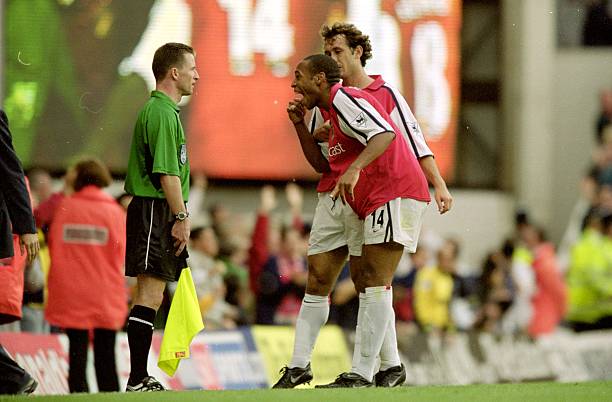
Thierry Henry v Liverpool, 2004
It’s not an overstatement to say that Wenger created his own footballing dynasty in North London. His legacy can be seen in the Emirates Stadium trophy room. In fact, the stadium itself is an epitaph to the man’s achievements.
Gunners’ fans have been treated to some truly scintillating football over the years. Wenger managed to achieve the holy grail of football management — to win trophies while playing beautiful football. Hundreds of spectacular football goals characterise Wenger’s approach to the game, but seven, in particular, will live long in the memory.
This game against Liverpool was arguably the most sensational of Arsene Wenger’s reign with some stunning Arsenal goals. Arsenal had started the week with the chance of winning an unprecedented treble. However, a defeat to Manchester United in the FA Cup followed by a Champions’ League exit at the hands of Chelsea left Arsenal fighting for the Premier League title. Liverpool were winning 2-1 at half-time, and Arsenal’s season was in danger of falling apart.
But Thierry Henry spun the game on its head. The French striker’s hat-trick is still the stuff of legend, but it was his second goal that blew everyone away. Henry picked up the ball around the halfway line, and embarked on a crazy dribble — beating several hapless Liverpool defenders before calmly slotting the ball away.
Dennis Bergkamp v Leicester City, 1997
Dennis Bergkamp scored dozens of mesmerising goals during his time at Highbury. While many of those goals could have made this list, his exquisite effort against Leicester City back in 1997 deserves a special mention. Bergkamp scored a hat-trick that day, but it was his third that made history. The Dutch striker’s first and second touches were simply breathtaking, and his finish… genius.
https://www.youtube.com/watch?v=R3u0MsoqE2I
Thierry Henry v Manchester United, 2000
Arsene Wenger instilled confidence in all his players. Those who could were encouraged to express themselves with the ball, and no one did that better than the mercurial Thierry Henry. His 2000 goal against Manchester United was particularly special because it won the game, and came out of absolutely nowhere.
Henry received the ball from Gilles Grimandi around 20 yards from goal — on the corner of United’s 18-yard box. Despite Denis Irwin’s close attention, the French magician took one touch to flick the ball up, swivelled, and released an arcing shot that sailed past Fabien Barthez.
Robin van Persie v Charlton Athletic, 2006
Arsene Wenger had the midas touch when it came to plucking geniuses from relative obscurity in Europe. Robin van Persie was such a player. His natural goal-scoring ability was in the mould of predecessor Dennis Bergkamp (who would have been proud to score this stunner).
The great thing about this goal is that it demonstrates the wonderful way Wenger’s team used to pass the ball around. And at the end of a great piece of team play comes a strike that is easily one of the best in Premier League history.
Tony Adams v Everton, 1998
Some goals are so iconic that they’re played over and over again for decades to come. England’s fourth goal to win the 1966 World Cup, for example. Or Aguero’s last-second winner against QPR that won Manchester City their first Premier League title. Also in this category is Tony Adams’ goal against Everton.
Arsenal had already won the title and were leading by three goals with a minute of the season to go. In a moment that wouldn’t look out of place in a Hollywood movie, two centre-backs capped off a truly awesome season. Steve Bould chipped the ball towards an advancing Adams, who controlled the ball and fired a shot past the Everton keeper. The commentator and Arsenal fans were delirious — the captain had confirmed Arsene Wenger’s first Premier League title in style.
Freddie Ljungberg v Chelsea, 2002
Some goals are more special because of their meaning. And Freddie Ljungberg’s FA Cup Final winner against Chelsea in 2002 certainly falls into that category. Arsenal led the game with ten minutes remaining, thanks to a great goal by Ray Parlour. But Chelsea were pushing for an equaliser, and getting closer and closer.
When Edu won possession in the middle of the park, he gave the ball to Ljungberg, who still had an enormous amount to do. The Swede motored towards the Chelsea defence, making a young John Terry look rather ridiculous in the process. After a quick glance at goal, Freddie curled an exquisite shot past Carlo Cudicini to win the cup for Arsene’s men.
This game was later nicknamed “Freddie’s Final”.
Dennis Bergkamp v Newcastle, 2002
Ask 100 long-time Premier League fans what the best ever Premier League goal is, and at least 50 of them will say Bergkamp’s ridiculous strike against Newcastle United at St James’ Park. Very good players can do amazing things with the ball, but only the greats have the imagination and sheer audacity to pull off something as crazy as this. Without doubt, this goal is one of the best scored anywhere in the world… ever!
Viera started the move with a pass to Bergkamp from inside the Arsenal half. The Dutch striker then sent the ball across the pitch to Robert Pires, who made an attacking run down the flank. Meanwhile, Bergkamp continued, until he received the ball back from Pires. What Bergkamp did next is impossible to describe. Even Newcastle’s helpless centre-back Nikos Dabizas found it difficult to explain this witchcraft.
There are simply no words. Watch the magic for yourself, and know that you’re watching the work of a true genius. Well done Dennis, and thanks for the memories, Mr Wenger.
30 superb Arsene Wenger photos 2 years after leaving Arsenal
Two years ago, Arsene Wenger announced he was leaving Arsenal.
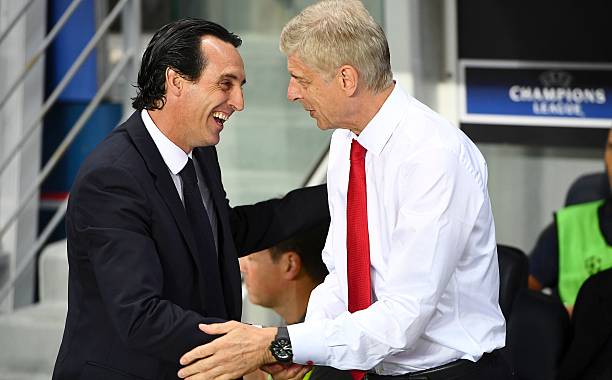
Yes, that’s right, two years.
And what a two years it has been since.
Arsenal’s decline, that we thought couldn’t get any worse accelerated under Unai Emery and, just when it looked like things were turning a corner under Mikel Arteta, the world shut down.
In honour of the great man, here are 30 of some of the best photos taken of him during his life.
Enjoy:
“I will always love Arsenal”: Arsene Wenger still watches former club’s matches, discusses team selection with friends
Arsene Wenger still watches Arsenal’s matches on TV and follows their results, discussing talking points like team selection with friends.
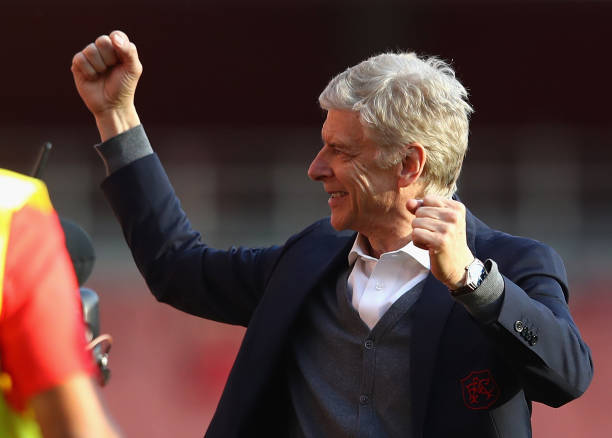
That’s according to Julien Laurens, the French writer who has grown close with Wenger over the years.
Laurens recalls a discussion with the former Arsenal boss four weeks ago, where Wenger wondered about the team Unai Emery would pick against Eintracht Frankfurt, whether he’d rotate, whether young players would get chances.
The 70-year-old, who celebrates his birthday today, still refers to Arsenal as “we” in conversation, still watches the games on television as much as possible, and he recently stated at the Nordoff Robbins awards dinner: “I will always love Arsenal”.
All the same, he’s yet to go back to watch a game in person, with the suggestion that it’s just too soon at the moment.
Wenger has simply transitioned into being a fan from a distance. After 22 years with the club, it was always unlikely he would be able to immediately cut ties completely, whether he wanted to or not.
When he was still manager, Wenger told the media: “I would be happy to sit in the North Bank. In the job I do (next), will I be free on the day Arsenal plays? But I will be happy to be in the North Bank if you can get me a ticket.
“The positive of that is that I can shout at the next manager!”
It was a nice sentiment, but the reality Wenger will be well aware of is that if he did turn up in the North Bank right now, it would be a major distraction. Every reaction, every smile or frown, every remark to a fellow spectator, it would all be scrutinised and publicised, especially when anything went wrong on the pitch.
For now, he can still follow the team through his TV stream, or through discussions with others. It’s just nice to know he still wants to.
Arsene Wenger explains why he left Jurgen Klopp and Jose Mourinho out of his autobiography
Arsene Wenger has revealed the reason he left Jurgen Klopp, Jose Mourinho, and Pepe Guardiola out of his book was because trio are still working in management.
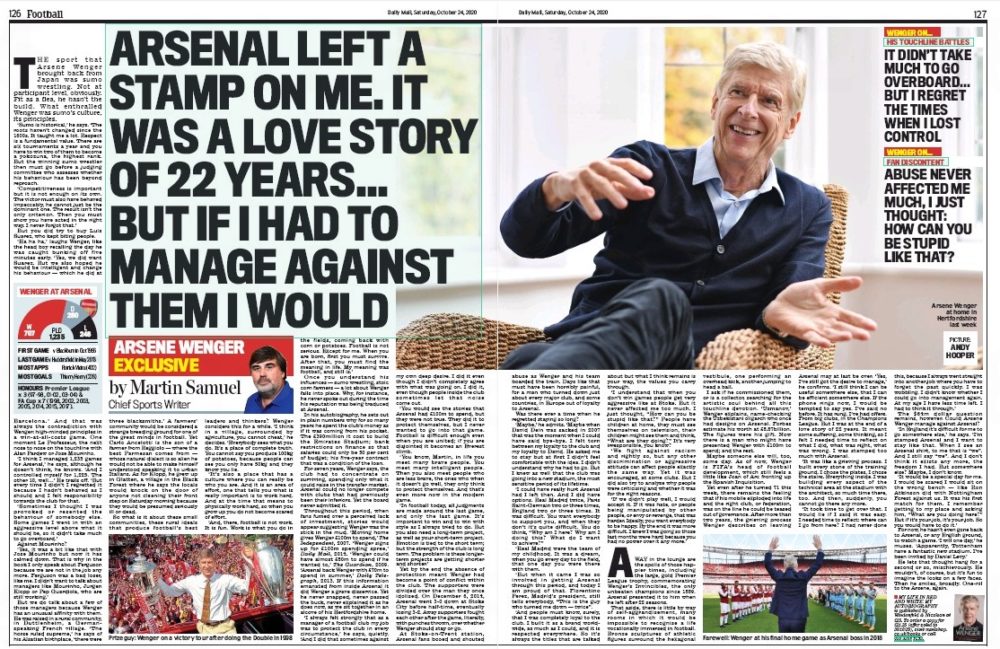
Arsene Wenger is still giving interviews after the launch of his book. In an exclusive with the Daily Mail this weekened, he revealed that he still wants to manage again and he would have no problem managing against Arsenal.
He also explained why he omitted Jose Mourinho, and other managers nobody seems to have noticed he didn’t mention.
“I think I managed 1,235 games for Arsenal, and I controlled myself for 1,225. The other 10, well…,” Wenger told Sportsmail.
“But every time I didn’t I regretted it because I hadn’t behaved as I should and I felt responsibility towards the club for that.
“Sometimes I thought I was provoked or resented the behaviour of somebody else. Some games I went in with an aggressive level above what it should be, so it didn’t take much to go overboard.”
Does he mean against Mourinho, who he snubbed from the book entirely?
“Yes, it was a bit like that with Jose Mourinho but now it has calmed down. That is why in the book I only speak about Ferguson because we are not in the job any more. Ferguson was a bad loser, like me. I didn’t want to talk about managers like Mourinho, Jurgen Klopp or Pep Guardiola, who are still working.”
Earlier this week, Wenger hit back brilliantly at Jose Mourinho’s claims he was left out of the Frenchman’s autobiography because he never beat him.
With Wenger currently on a book tour to promote ‘My life in red and white‘, it was inevitable he would be asked about Mourinho’s comments and his reply didn’t let us down.
“It does not upset me,” Wenger said on Canal Football Club [via GFFN].
“With him its constant provocation. I feel like I am at kindergarten, but that is part of his personality. And it is false, we beat him (2 out of 19 times). We won, and there were also a lot of draws.
“And it is not “you” who wins, you participate in the victory. It is “we” who win. The manager is there to get the maximum out of the team.”
https://dailycannon.com/2020/08/8-years-later-jose-mourinho-finally-understands-arsene-wengers-point/
7 worst Arsene Wenger signings of all time
Arsene Wenger signed a lot of players after taking charge in 1996, but who were the worst Arsene Wenger signings of all time?
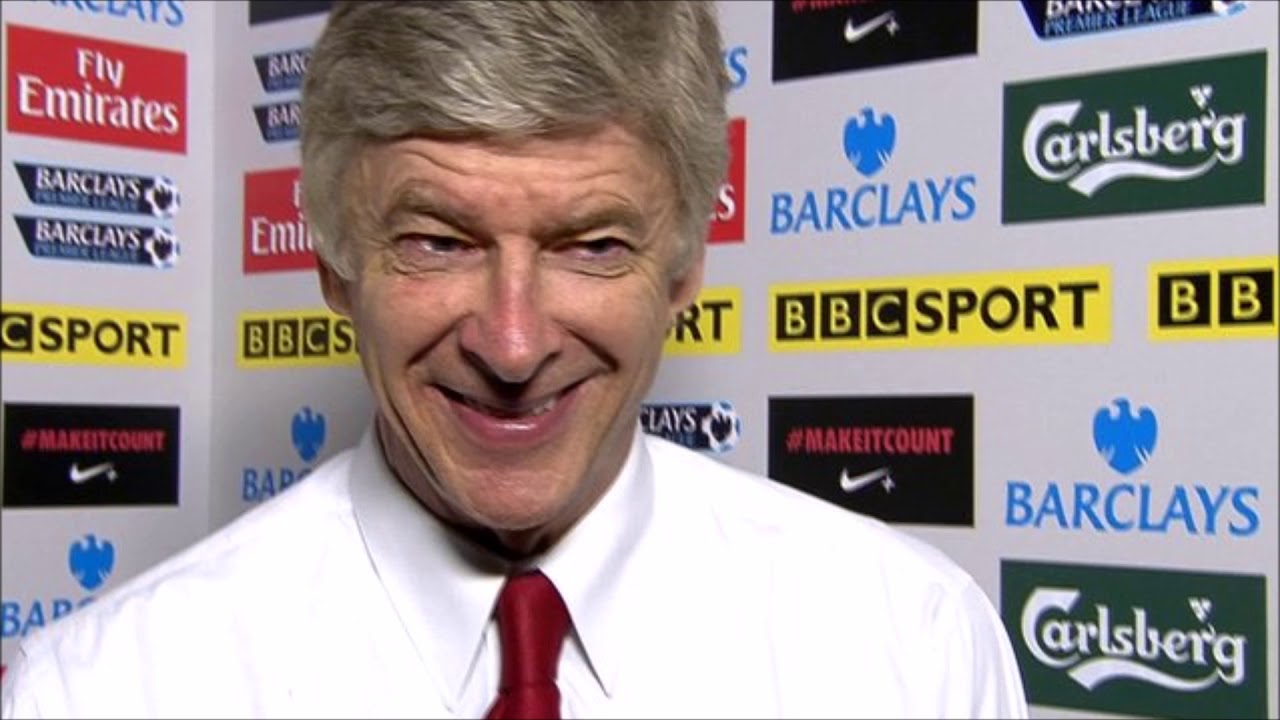
There have been some bad signings down the years but when it comes to worst Arsene Wenger signings, there are a few to pick from given how long he was at the club.
They can’t all be winners, but we saw some particularly disastrous buys feature for Arsenal quite regularly during Wenger’s time at the club.
Here are seven of his worst signings.
Igors Stepanovs
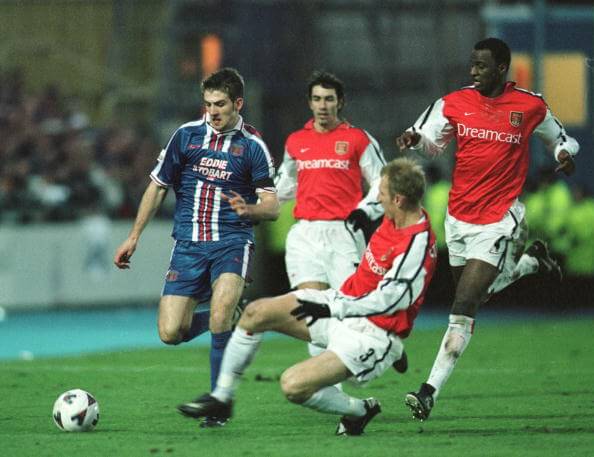
If you thought Arsenal signing obscure players from out of nowhere was a modern Wenger-thing, then think again.
It 2000, Arsenal signed a young defender from Latvian side Skonto Riga called Igors Stepanovs who opens up our list of worst Arsene Wenger signings.
The centre back didn’t play right away, but injuries gave him a chance.
He didn’t start too badly, either. Arsenal won four out of his first seven games.
Then they went and lost 6-1 at Old Trafford, and he never quite recovered.
He went on to make just 17 Premier League appearances, most of which came in his first season, before being released in 2004.
Amaury Bischoff
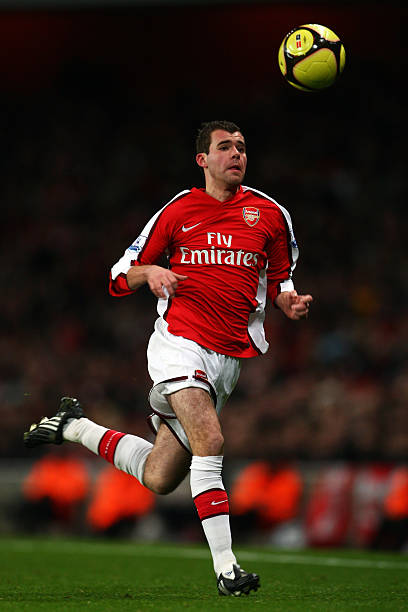
A more modern example of the “random player out of nowhere” fad at the club. In 2008, the club signed French-born Portuguese youth international, Amaury Bischoff, from Werder Bremen for a nominal fee.
The then 20-year-old was signed despite serious injury problems, making his signing a gamble before he even put on an Arsenal shirt.
He managed four first team appearances in his one and only season with the club before being released in 2009.
Andre Santos
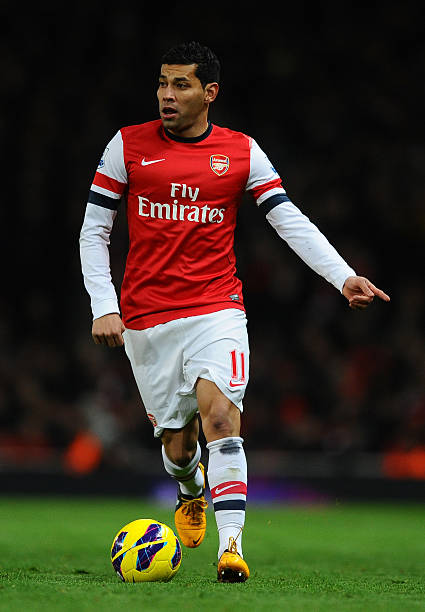
This is a bit harsh on the jolly Brazilian, who at least brought plenty of personality to the Arsenal squad. It was just his footballing ability didn’t quite match it.
Part of the infamous trolley dash of 2011, Santos arrived from Fenerbahce to replace Gael Clichy at left back. A full Brazil international, we thought we were signing a decent wing back.
What we got was a player who was rather unfit, a little slow and incapable of completing a tackle.
He did, at least, score a couple of goals for the club. His first was in a 5-3 win over Chelsea, and his last was in a vital 3-2 win over West Brom.
Still, you wonder how desperate we were for left backs when we signed him.
Francis Jeffers
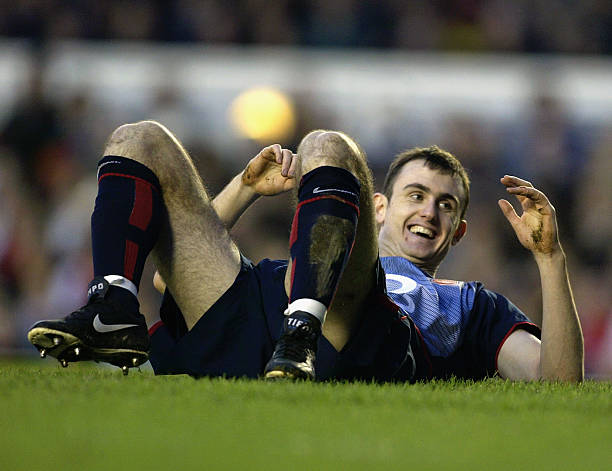
Francis “fox in the box” Jeffers had everything going against him the moment he arrived.
The then-Everton youngster came to the club due to Wenger’s need for a penalty-box poacher to complement his speedy, creative forwards.
The club paid a handsome fee to sign him so he could convert the numerous chances the team was creating.
Unfortunately, he couldn’t handle the weight of expectation, and suffered a few injuries on top of that.
Jeffers left in 2004 and had a journeyman career before retiring in 2013.
Sebastien Squillaci

Arrived with a decent reputation from Sevilla in 2010, but very rarely looked comfortable in the Premier League.
Squillaci always lacked the physical attributes to succeed in the division, and proved to be highly error prone.
He made 39 appearances for the club before he was let go to Bastia in 2013.
Mikael Silvestre
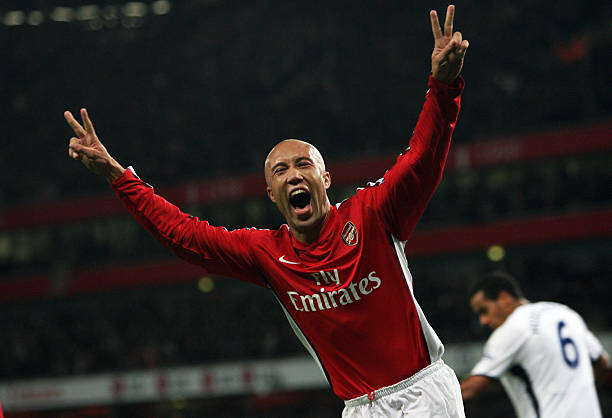
Fans awoke the day after deadline day in 2008 to discover that club had signed Mikael Silvestre from Manchester United for under £1m.
The sheer confusion over the deal defined his time at the club. He was cover for left back and centre back, yet fans couldn’t work out why the club had signed someone who couldn’t get into United’s first team.
His most telling contribution was a goal against Tottenham and an excellent one-two with Lionel Messi during a 4-1 thrashing against Barcelona.
Park Chu-Young
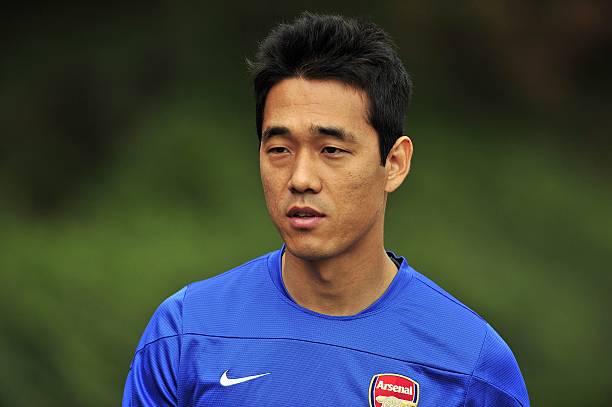
To this day, the signing of Park Chu-Young remains a mystery.
The forward’s one and only accomplishment at Arsenal was ensuring they’d be on South Korean TV for a third round League Cup tie against Bolton.
He scored a very nice goal that evening, and fans believed he could a be a solid back-up.
Then, he disappeared. He played seven minutes of Premier League football then vanished for a season.
He popped up for a League Cup cameo in 2013, and then disappeared again.
There might be an interesting story about this signing.
As it is, he has to be Wenger’s worst ever buy.






